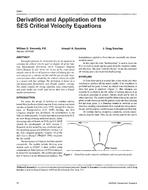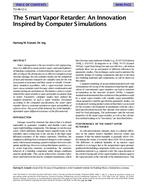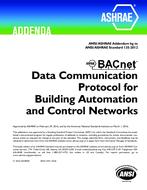Minimizing the waste energy of pumping systems is one of the primary foci in facility operation. Thus, investigating capitaland energy costs for running such a facility was studied and analyzed for this paper. Specifically, a comparative study of using variable-speed pumps versus constant-speed pumps wasconducted in the steam power plant at the University of Kansas. This study considers the energy costs/savings of the pumps themselves, whose task is to provide water to the open feedwater heater (deaerator). Because the pumps affect other systems in the power plant, overall plant costs/savings are also considered (i.e., life-cycle costs).
At the outset, the variable-speed pump would appear to be the most economical choice, even with its more complicated and expensive design. However, in the University of Kansas power plant, any excess water that is returned to the storagetank passes through a heat exchanger, which is used to reclaimenergy from the deaerator’s vented steam and noncondensablegases before they are released to the atmosphere. However, thisis not the case for the variable speed pump when running inlevel control mode. Thus, in addition to considering just thecomparison of the costs/expenses of the two types of pumpsthemselves, it is necessary to consider the costs/expenses fromthe heat exchanger’s operation.
Based on a 20-year life-cycle cost analysis, whencompared with the constant speed pump, the variable-speedpump saves approximately $25,000 in electricity. However,when the lost energy from the heat exchanger’s reclamation isalso considered, using the constant-speed pump for that same20 years saves approximately $800,000, which would be paidfor the extra fuel required to compensate for not reclaimingenergy. Thus, in this case, use of the constant-speed pumpingsystem, including energy recovery of the deaerator’s exhaust,is strongly recommended.
In light of this analysis, to benefit from both the variable speedpump and the deaerator’s energy reclamation system, it is recommended that there be a power plant redesign that takes advantage of both systems. Details regarding the specifics of the redesign are included in this paper./p>
Citation: 2018 Winter Conference, Chicago, IL, Technical Papers
Product Details
- Published:
- 2018
- Number of Pages:
- 11
- Units of Measure:
- Dual
- File Size:
- 1 file , 1 MB
- Product Code(s):
- D-CH-18-011


